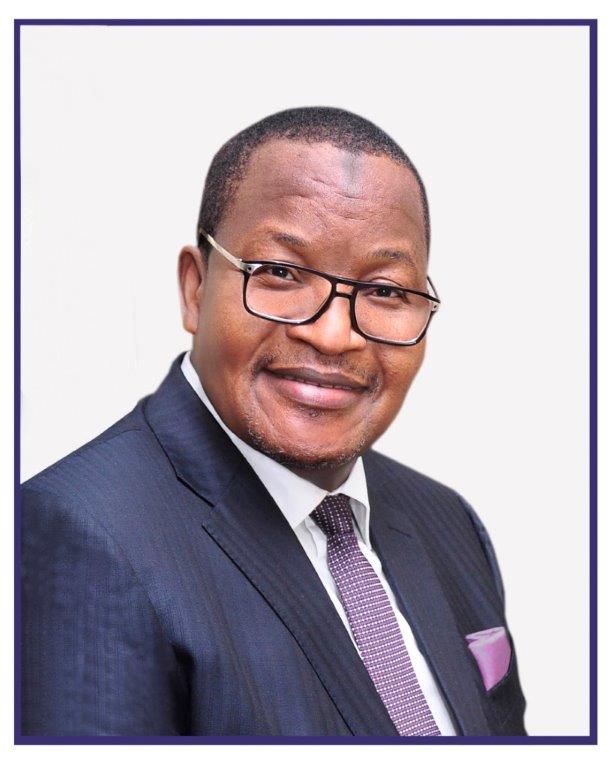News
NCC, UK advance collaborative course on RoW reform
Published
6 years agoon

Agencies of the Federal Government of Nigeria and that of the British Government have joined forces in partnership to engender a reform of Right of Way (RoW) administration in Nigeria.
Particularly, the British Government, through its Prosperity Fund’s Digital Access Programme, has said this is in line with its pledge to support and promote inclusive and sustainable digital access to unserved and underserved communities in Nigeria.
Read Also:
In collaboration with the Federal Ministry of Communications and Digital Economy and the Nigerian Communications Commission (NCC), the Digital Access Programme, hosted the first Nigeria Technical Conference on RoW last week.
The event was designed to further aggregate views from key stakeholders, towards the advancement of policy and regulatory reforms on RoW and issuance of planning permits for mast and towers.
Catriona Laing, the British high commissioner to Nigeria remarked during the programme that Nigeria has seen great progress in the effort to provide inclusive digital access to millions of its citizens.
“The COVID19 pandemic has however, made the world rely more heavily on internet connectivity for access to basic necessities – health, education, work, shopping, convenience and other services, he said, adding that as such, substantial digital inequities have been revealed.
“The UK is keen to support the promotion of affordable, inclusive, safe and secure digital access for underserved or excluded populations, and this conference is a significant step to discuss the technical findings of our preliminary study, outcomes, lingering challenges and the way forward,” Laing said.
Menwhile, Umar Garba Danbatta, the executive vice chairman of the NCC, represented by Adeleke Adewolu, the executive commissioner stakeholder management (ECSM), appreciated the UK Government’s Digital Access Programme for their support in championing reforms on RoW to deepen digital inclusion in Nigeria.
“The Technical Assistance on RoW reforms will assist in our quest for deepening broadband penetration in Nigeria.
“NCC is willing and ready to advance the reforms noted in the technical study and will collaborate with stakeholders to effect it in the short, medium and long term.” He added
Applauding state governments that have announced the reforms on RoW, the UK Government’s Digital Access Programme Adviser and Country Lead, Idongesit Udoh, said: “This project will help accelerate the roll-out of backbone connectivity infrastructure, to underserved communities which is the key to unlocking Nigeria’s digital economy for inclusive, digitally-enabled growth, development and job creation for Nigerians.
“The Digital Access Programme is also working on other projects such as cybersecurity essentials upskilling for SMEs around the country and basic digital literacy to promote inclusive economic growth and development.”
Action Points
The input of the conference will assist the Government in further reducing the encumbrances bedeviling ICT infrastructure, especially in the provision/ building of resilient fixed Infrastructure in the federation, the NCC has said.
Equally, the programme will further assist in the commission’s quest to deepen broadband deployment and penetration in Nigeria.
“Furthermore, ubiquitous broadband will propel social and economic development and growth of citizens, as in; local content development & innovations, the proliferation of ICT industries, building digital skills, etc.
“The NCC on its part is ready to collaborate with the UK Government Prosperity Fund-Nigeria Project, especially on the subject matter of today, i.e. reforming the administration of RoW and planning permits in Nigeria.
“We note, the short, medium, and long-term actions set up in the report and we will work assiduously to their achievement.
“We also, encourage our service providers to appreciate some of the challenges faced by the state government and hope this will enable them to collaborate with the state government to effectively overcome the challenges,” Danbatta said.
The Digital Access Programme
The Digital Access Programme is a UK Government Prosperity Fund flagship initiative led by the UK Department for International Development (DFID) and delivered in partnership with the Foreign & Commonwealth Office (FCO) and the Department for Digital, Culture, Media & Sport (DCMS).
Five countries, namely: Nigeria, Kenya, South Africa, Brazil and Indonesia have been recognized under the programme.
The objective of the Programme is to catalyse affordable, inclusive, safe and secure digital access for underserved or excluded populations, and to use increased digital inclusion as a basis for a more thriving local tech ecosystem, generating skilled jobs and innovative solutions for local development challenges.
Funded and overseen by the Digital Access Programme, Greenfields Law, a leading telecom policy, law and regulation firm in Nigeria had engaged with key stakeholders and proposed effective solutions based on the evidence gathered, while taking into account international best practice.
Share this:
- Click to share on X (Opens in new window) X
- Click to share on Facebook (Opens in new window) Facebook
- Click to share on WhatsApp (Opens in new window) WhatsApp
- Click to share on Pocket (Opens in new window) Pocket
- Click to share on Telegram (Opens in new window) Telegram
- Click to email a link to a friend (Opens in new window) Email
- Click to share on LinkedIn (Opens in new window) LinkedIn
You may like


NCC Committed to Regional Digital Integration – Maida


Telcos to Pump Fresh N1.4 Trillion on Network Expansion – NCC


NCC to Rollout Satellite-to-Phone Technology for 23.3m Nigerians


NCC, CBN Introduce 30-Second Refund Rule for Failed Airtime and Data Purchases


NCC Seeks Stakeholder Input on Draft Five-year Spectrum Roadmap, 60 ghz Guidelines


Nigeria’s Active Telecom Subscribers Hit 173.5m as Broadband Penetration Nears 50%












